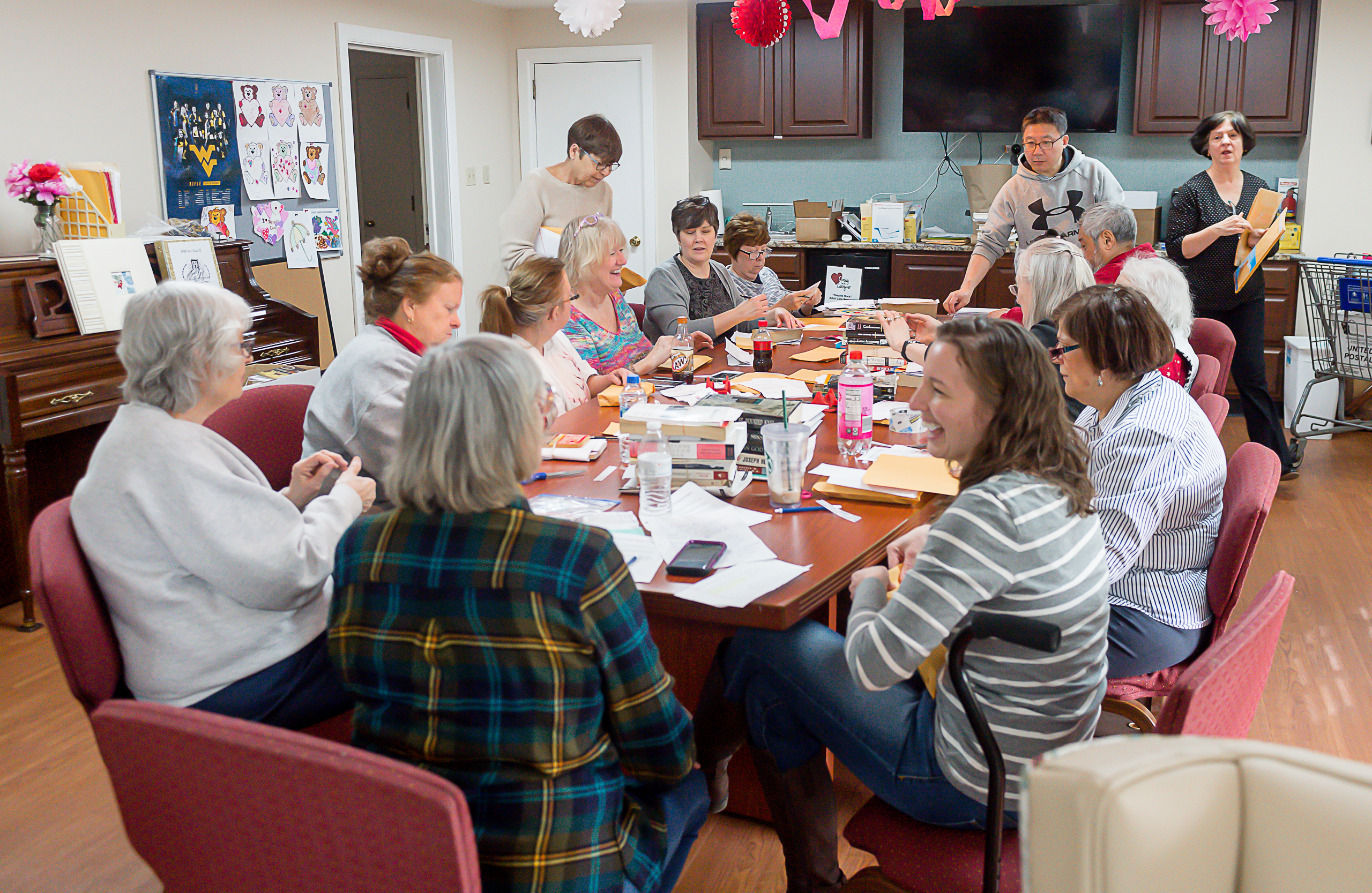A good book is freeing.
A good book is liberating.
And the words, ideas, observations and narratives contained therein can set any soul to soaring — no matter one’s physical surroundings.

Mary Toth used to tell her students that all the time.
On Sunday afternoon at Suncrest United Methodist Church, the retired elementary school educator was practicing what she used to teach.
She and a handful of other kindred spirts had gathered at the red-bricked church on Van Voorhis Road to help deliver those words, ideas, observations and narratives to a segment of the population that is currently residing behind bars and barbed wire in the region.
The group was preparing books that would be mailed to people incarcerated across West Virginia, Virginia, Tennessee, Kentucky, Ohio and Maryland.
That’s what the Appalachian Prison Book Project does.
The nonprofit effort was founded 16 years ago by Katy Ryan, a WVU English professor, to help the prison population appreciate — and even discover, in some cases — the profound, transformative power of reading.
To find out how you can volunteer or contribute books, visit the project on Facebook. It’s housed in the Aull Center, in Morgantown.
Since 2005 alone, 30,000 books, and counting, have gone out, free of charge, directly to inmates.
At Suncrest United Methodist, the group was putting books in mailing envelopes with a letter attached.
It was a form letter, each beginning with the salutation, “Dear Friend,” which was personalized with the inmate’s first name penciled in.
WVU students had also prepared books for shipment earlier that day.
The rustle of envelopes and the murmur of conversation provided the soundtrack at the church.
Titles on this day ranged from Michael Crichton techno-thrillers to studies of Mayan temple carvings.
Toth likes the intellectual width and breadth, and the accessibility, too.
“I like the idea of putting a book in someone’s hands who wouldn’t have had one otherwise,” Toth said.
Amen to that, project founder Ryan told The Dominion Post previously.
“Prisons are built to isolate and to separate,” the professor said.
“They stand as formidable barriers between those inside and those outside,” she said. “Books can lessen that isolation.”
And it’s not just about lyrical escapism, said Judy Panagakos, a book project board member who was helping coordinate Sunday’s work at Suncrest United Methodist. Learning and empowerment are heavily factored in.
“Dictionaries, thesauruses and almanacs are our most requested books,” she said.
That’s especially so in West Virginia, she said, where 90% of those doing time will eventually be released back into society.
Panagakos said she’s heartened by the thank you notes inmates write.
Their envelopes are usually adorned with drawings: Fanciful unicorns and dolphins, comical caricatures of inmates in striped uniforms with a ball and chain attached — things like that, she said.
“There’s a spirit and a sense of humor there,” she said.
Toth, meanwhile, wants the receivers of the books to come away with a sense that they aren’t being judged, or forgotten.
“It’s important for them to know that someone on the outside is still thinking about them,” she said.
TWEET @DominionPostWV.




